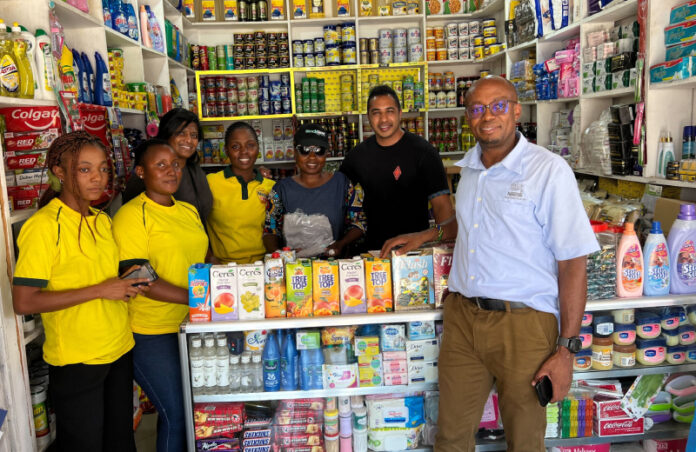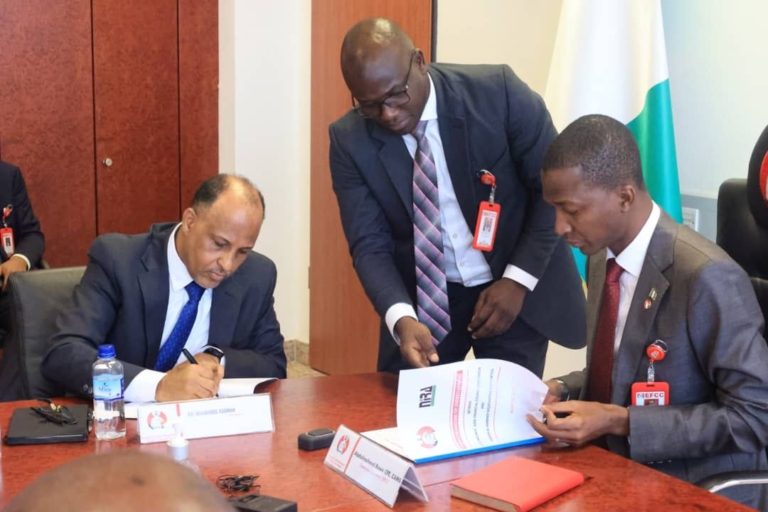Adedeji Olowe is quickly establishing a global reputation as Africa’s open banking pioneer
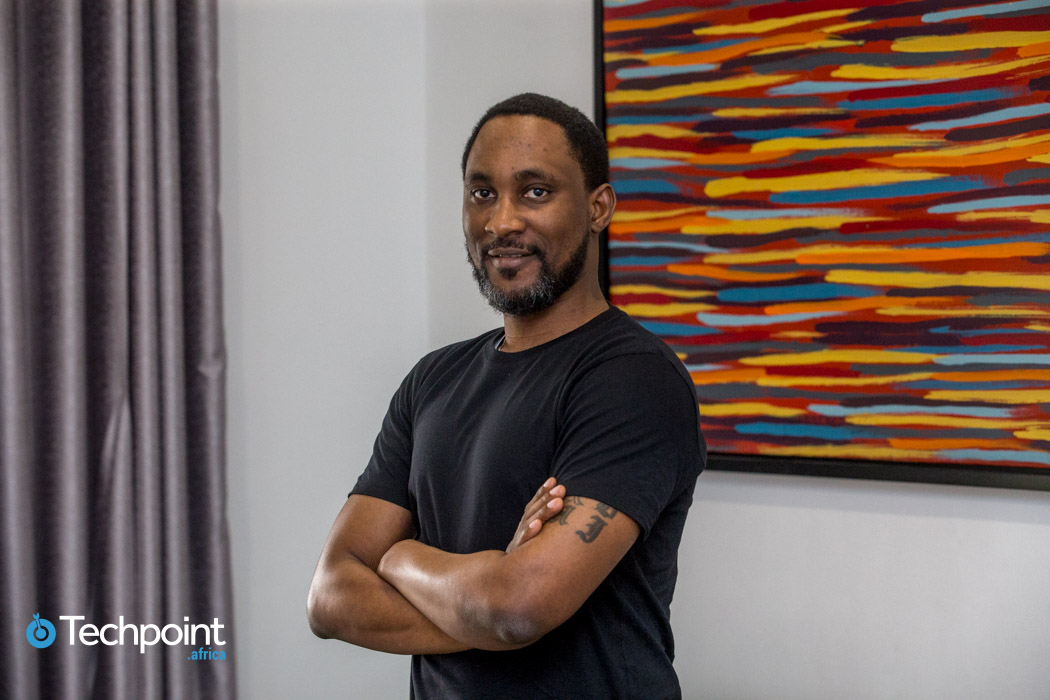
Despite the continent’s technologically savvy population, financial exclusion remains a problem. However, the challenge of regulatory influence and industry acclimatisation came with the launch of fintech startups.
In 2018, a financial expert and tech investor thought it was difficult for fintech startups to integrate with banks — a necessary partnership for the former to successfully enter the banking market. Banks, on the other hand, must work with fintechs to increase revenue and maintain market dominance.
Undaunted by the difficulties, Nigerian fintechs have multiplied, with the market expanding exponentially, as evidenced by an increase in investments and the frequency of new entrants into the space. Adedeji Olowe saw all of this and decided to take action to address the industry’s challenges.
“Imagine if that pain was completely removed and you could easily integrate with any bank,” Olowe said, snapping his fingers to indicate speed, “like what takes years or months could be done in a day.” When this occurs, fintechs will devote more time to providing their services rather than attempting to connect with a bank.”
As we talked in his Lekki Phase 1 home, he couldn’t help but bring up open banking, which he described as his most daunting challenge in what can only be described as a flourishing career.
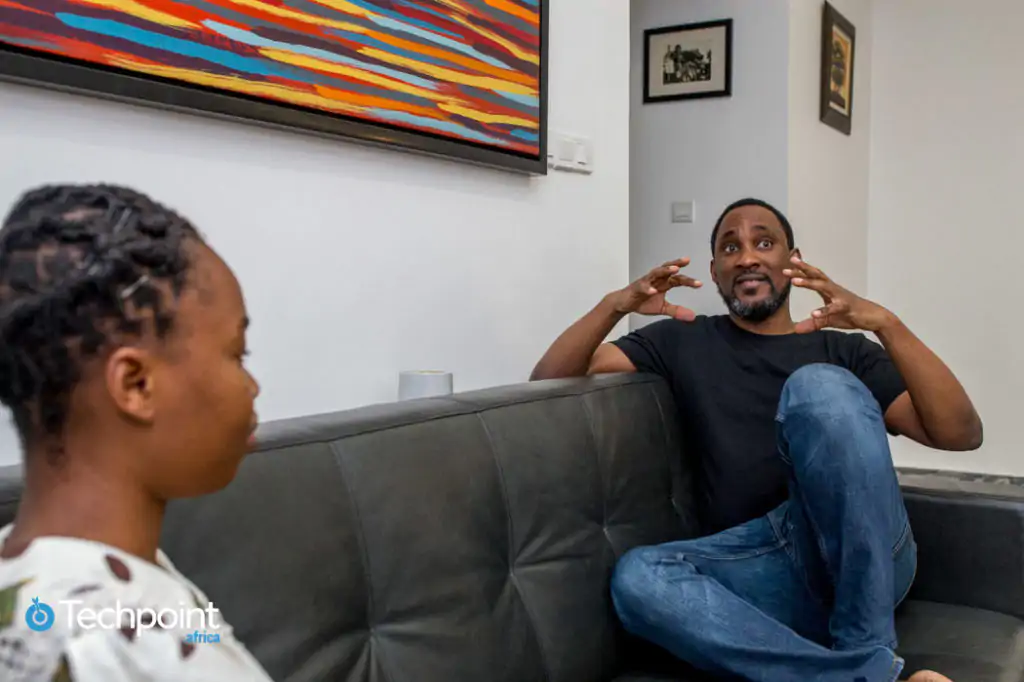
Many people have benefited from the father of three children’s assistance in the establishment of businesses. He was an early advisor to Wallets Africa, a founding member of TeamApt, and is now an independent member of the Paystack board. He also serves on the board of Sparkle, a Nigerian digital bank. Olowe is the CEO of Trium, a venture capital firm, and is widely regarded as the African leader in open banking.
Despite the fact that Africa, like other developing regions, has been slow to implement open banking regulations, he believes the time has come to catch up with Europe and Asia.
Motivated by his conviction, Olowe has taken it upon himself to seek structures that will not only allow banks and fintechs to collaborate seamlessly, but will also make the process appealing to new entrants.
Despite the fact that Adedeji has spent the last four years advocating for open banking regulations, he insists that he has no intention of profiting from them. He chose not to patent it, instead opting to be known as a trustee.
Olowe’s satisfaction would come from knowing that his solution had a positive impact on people for years to come.
Perhaps the significance of this move isn’t clear yet, but the pinnacle of its success would be for every bank to use the same application programming interface (API), making it simple for any fintech company to integrate. Don’t worry; we’ll make everything clearer later.
Adedeji had accomplished a lot before focusing on open banking and tech investment. Before we get started, let’s take a look at where he’s coming from.
A background that paid off
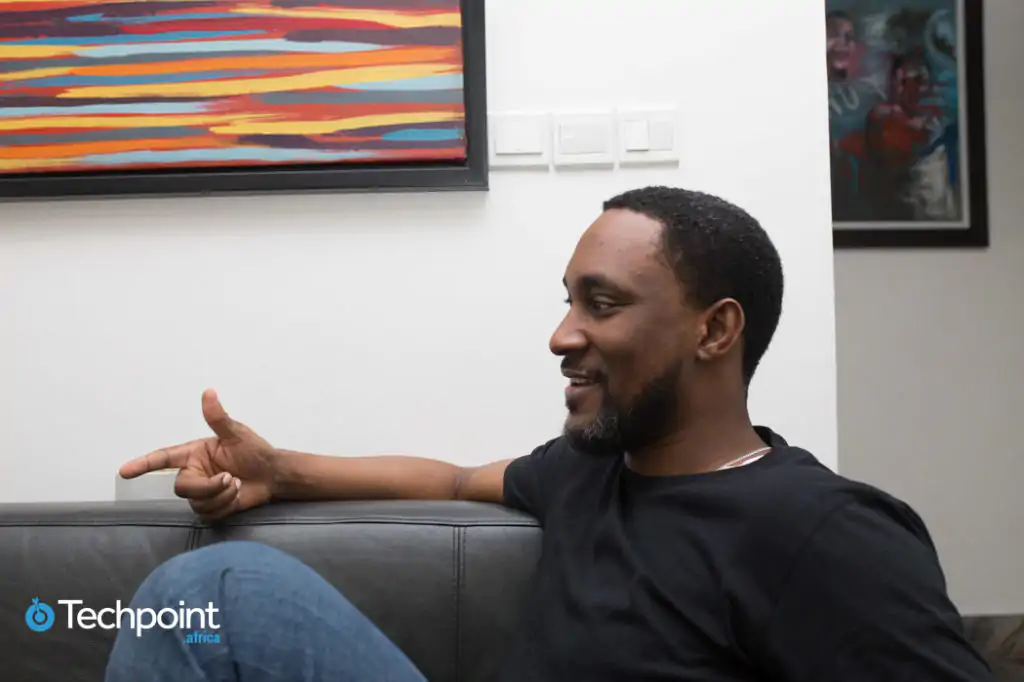
Adedeji, who was raised in Southwestern Nigeria by an academic mother, earned his first degree in electrical engineering in 2001. And ten years later, in the midst of a successful banking career, he earned a Master’s degree in mechanical engineering from Kings College, London.
“I’ve spent my entire life in finance; I’ve never worked as an engineer,” he explained.
Nonetheless, he didn’t forget to mention how his current achievements are due to his academic and exemplary upbringing.
Adedeji’s career path has been consistent in its upward and forward movement. He has taken some uncalculated risks thus far in his journey.
“I’ve always been a curious kid, and my curiosity has always gotten the best of me.” And I’ve always loved to write,” he admitted, recalling simpler times when he considered his writing to be “letters to abuse people,” for which he was spanked numerous times.
Many articles on Adedeji’s blog explain current issues in banking and financial inclusion, as well as tech adoption.
Some of his articles include fintech predictions for the year, which he started in 2017. He has an uncanny ability to predict fintech trends, but he has yet to achieve 100 percent accuracy. Olowe makes his predictions matter-of-factly, referring to them as “educated guesses, at best.”
Career track marked with passion and excellence
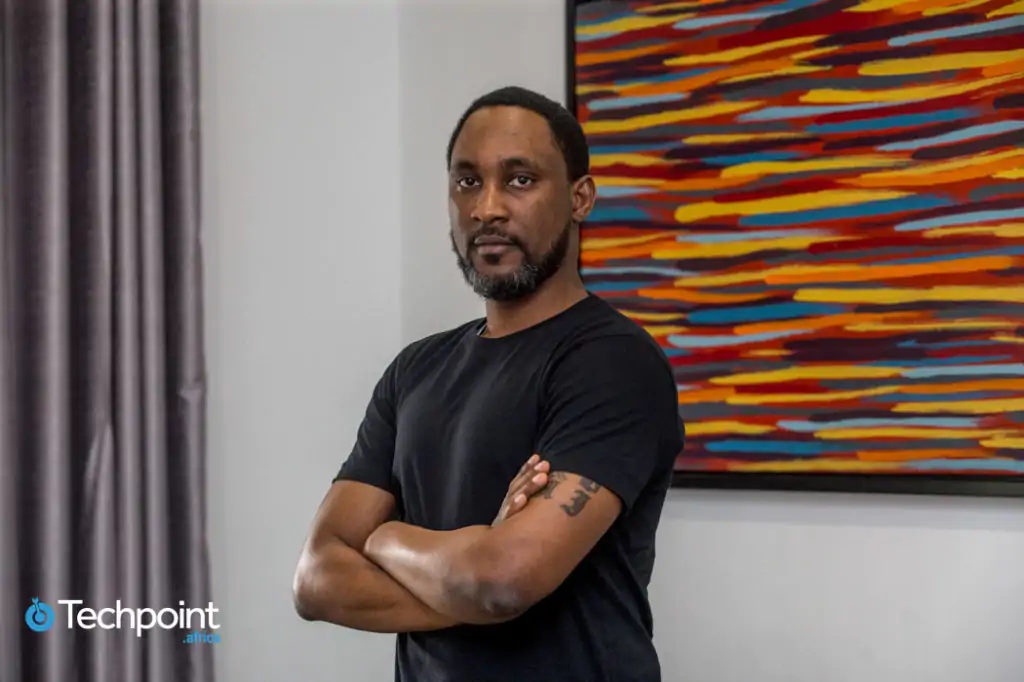
Adedeji has worked his way up from an entry-level position in a commercial bank to executive positions in the sector, and he now heads a venture capital firm. Companies sought him out after his first two moves because of the value he could bring to the table.
Adedeji took the initiative on a regular basis. For example, during his first job at Standard Trust Bank as an entry-level member of the e-banking team, he created an intranet — an internal website — to fill a void without being asked.
Two years later, at Access Bank, his team created a data analytics system that ensures easy access to information within a bank.
For some reason, Adedeji felt compelled to prove himself and take risks. He recalled his best career move as working for United Bank of Africa (UBA) for over six years, the longest of any of the seven financial institutions he worked with.
“I started out in finance and then moved on to digital banking.” That was when I was in charge of all of UBA’s card products in 19 countries. And at that time, I did not know anything about cards, but I always loved to challenge myself. And in about seven months, I became an expert, one of the best. That was a difficult period for me not only because of the demand, but it forced me to grow.”
He attributes his success to his perseverance and obsession with learning, which served him well during a stint outside of Africa before focusing on fintech and tech investment.
Aside from admitting to a constant need to make an impact by seeking new challenges, Adedeji was deliberate in his career strategy, which was responsible for his steady rise.
“First and foremost, I was good,” he admitted bluntly, “then, secondly, I moved around.”
This explains why he had such a strong presence in many Nigerian banks.
“You get the next thing when you move.” When you stay, you have to wait longer for the next promotion.”
“There are risks to it as well,” he said, pausing to add a disclaimer. Because if you’re in a good place and get greedy and jump to a bad place, you could get screwed.”
To put it into perspective, as Adedeji’s career demonstrates, being exceptional eventually does the trick because you are frequently called upon for a higher challenge when you have outstanding potential.
“Instead of joining people in complaining about a problem, I was solving it around me.” That’s how I developed.”
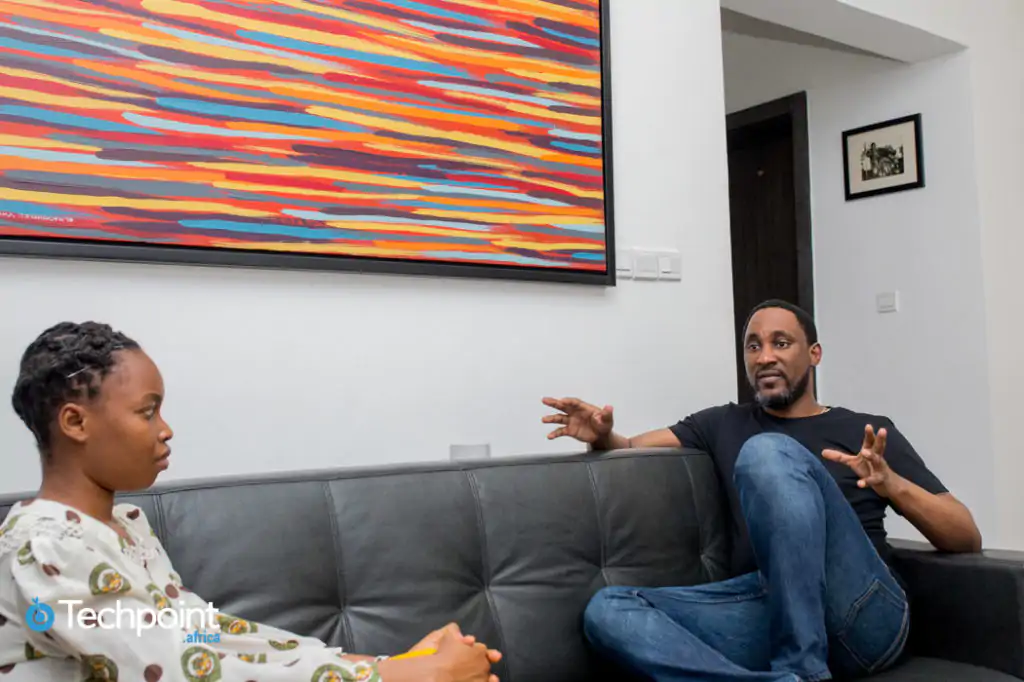
He was emphatic in declaring that this strategy, combined with work excellence, enabled him to rise to a senior managerial position in banking in less than seven years, a feat that would normally take twice as long if he stayed at one bank.
Practicing open banking
Adedeji’s journey became even more interesting after he decided in 2017 that he was done working in banks. Again, his curiosity and desire to apply himself led him to a more significant challenge that has the potential to significantly influence Africa’s financial industry for many years to come.
After working as an executive director at SystemSpecs, one of Nigeria’s first fintech companies, he became acutely aware of the need for all banks to speak the same language.
“The first issue I discovered was that most banks do not have APIs.” The second issue is that, even when they have APIs that do the same thing, two banks do not solve problems in the same way. What about the third? There is no standardized method for granting everyone access to the APIs.”
Once all banks have the same APIs and simple access guidelines, a new fintech would only need to understand the API standard, and any code it wrote would work seamlessly with any bank.
Enter open banking

A new fintech that wants to integrate with five different banks that have completely different standards would have to go through a lengthy and time-consuming process. This is where open banking steps in to relieve stress and save the day.
Adedeji clarifies that open banking is a standard, not a technology.
To put it simply, he compares open banking to a standard in which every bank is required to have a specific type of electrical socket, say, circular holes, and every fintech has plugs with circular points that fit perfectly.
This means that any new fintech can connect easily without the need for a multipurpose adapter or connecting wires directly to outlets.
However, this is easier said than done.
“For starters, all of the banks must approve of the concept. And CBN has to make a rule,” Olowe explained, explaining why he was hesitant at first.
On June 1, 2017, just before midnight, he decided to take the first step. He sent an email to all of his friends with the subject “Let there be open banking!”
Although he received acceptance from friends and other persons of interest, including the CBN, there were numerous rejections in the months that followed.
Adedeji is relieved that the most difficult hurdle, obtaining CBN approval, has already been overcome, indicating that the work is 80 percent complete. Fortunately, the CBN issued a directive to that effect in February, titled “Regulatory Framework on Open Banking in Nigeria.” What is ongoing is the development of a standard.
But he still considers open banking to be his most significant accomplishment, “because that is me driving something that I’m not going to benefit from, but it will benefit a lot of people.”
Although he does not expect to profit financially from this, it will have a positive impact on the investment sector in which he now works. So, win-win situation.
This is not the end
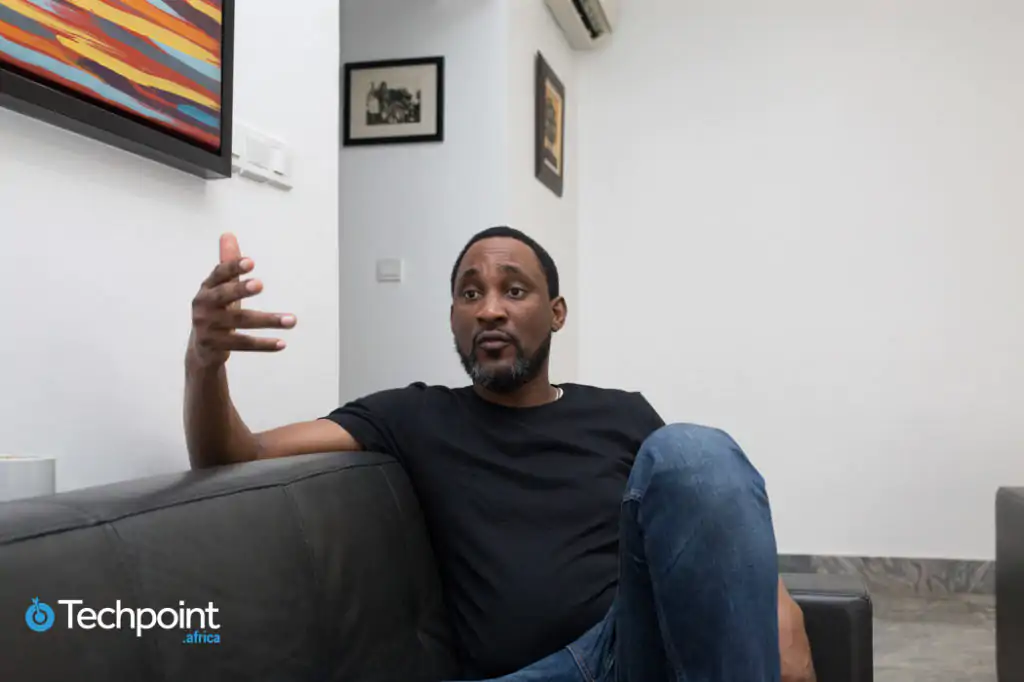
Adedeji has big plans to help Nigerians with more than one issue. He aspires to build a school in rural Nigerian cities for intensive training in vocational studies, creative and technological skills, and where indigent students can study on a scholarship. This is based on the idea that not everyone is cut out for the confines of a tertiary institution, and that everyone deserves a better life.
When he isn’t tinkering and building things, he is interested in human genetic make-up (DNA), metacognition, and the sense of being aware. Adedeji enjoys traveling and, after visiting thirty countries, is considering purchasing a helicopter to fly around Lagos State.


